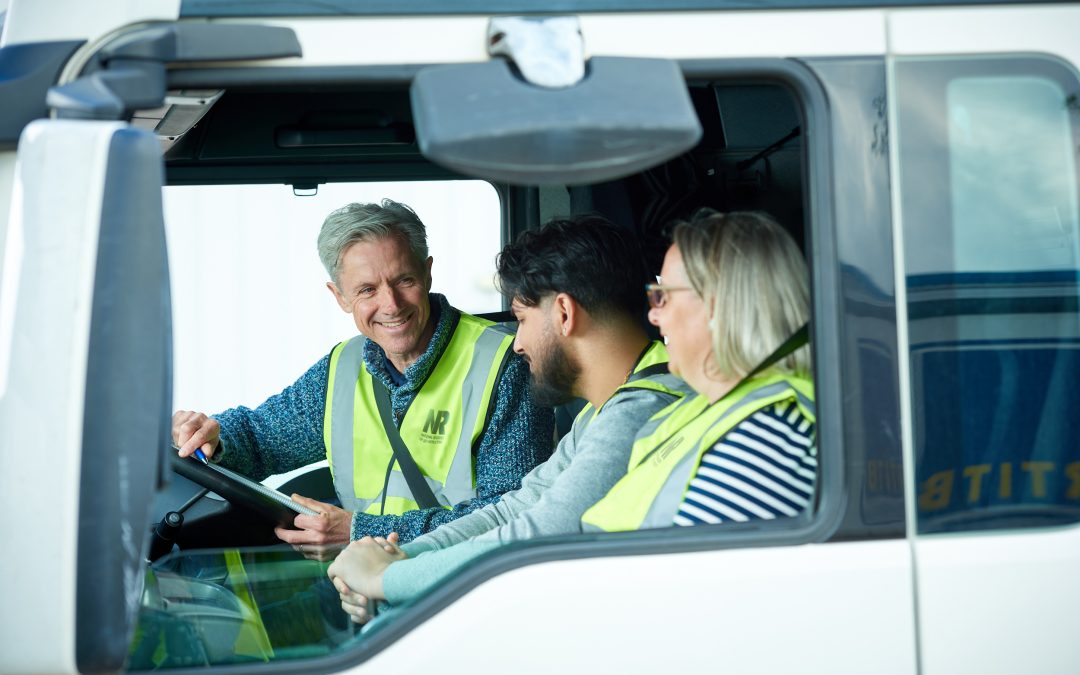
The UK Government has announced further plans to help reduce the LGV/HGV driver shortage. These plans follow the recently announced vocational test changes which will create an extra 50,000 lorry tests every year. DVSA (Driver and Vehicle Standards Agency) has already delivered 50% more tests than were available before the pandemic.
Ministry of Defence Driving Examiners
The Ministry of Defence (MoD) has announced the immediate deployment of their Defence Driving Examiners (DDEs) to work alongside DVSA examiners. MoD examiners are fully trained to conduct lorry tests and will work alongside DVSA examiners providing thousands of extra tests over the next 12 weeks.
Tests will be added to the booking system and candidates and trainers will be able to book these additional tests. These examiners will be in addition to the 40 extra vocational examiners that DVSA is currently recruiting following a recent recruitment campaign.
Delegated Driving Examiner Changes
The UK Government is bringing in legislation to allow delegated driving examiners at the 3 emergency services and the Ministry of Defence (MoD) to conduct driving tests for one another. The change will help increase the number of lorry tests that we can carry out and will give the emergency services greater flexibility.
It will also allow NHS Ambulance Services and Foundation Trusts to carry out ambulance driving tests for their own employees.
The change was consulted on over the summer. We will provide further updates on when this legislation comes into force.
Employment Opportunities For Former LGV/HGV Drivers
Department for Transport (DfT), along with leading logistics organisations have worked with the DVLA (Driver and Vehicle Licencing Agency) to send nearly 1 million letters to thank LGV/HGV drivers for their vital role in supporting our economy, and to encourage those who have left the industry to return.
The letter, which will arrive on doormats over the coming days, sets out the steps the road haulage sector is taking to improve the industry, including increased wages, flexible working and fixed hours. Read the full letter on GOV.UK.
Further guidance on returning to LGV/HGV driving is available on GOV.UK.
LGV/HGV Training Courses
The Department for Education is investing up to £10m to create new Skills Bootcamps to train up to 3,000 more people to become LGV/HGV drivers.
The free, short, intensive courses will train drivers to be road-ready and gain a Cat C or Cat C&E license, helping to tackle the current HGV driver shortage. An additional 1,000 people are expected to be trained through courses accessed locally and funded by the government’s adult education budget.
Fuel tanker drivers need additional safety qualifications, which the Government will work with industry to ensure drivers can access as quickly as possible.
To help make sure new drivers can be road-ready as quickly as possible, the Department for Transport (DfT) has also agreed to work with DVSA to ensure that tests will be available for participants who have completed training courses as soon as possible.
An additional 1,000 people are expected to be trained through courses accessed locally and funded by the government’s adult education budget.
There are currently 5 Level 2 certificates in driving goods vehicles available to take.
Previously, adults who took these qualifications had to pay for their own licences.
This change will be backdated and applied to anyone who started one of these qualifications on or after 1 August 2021.
Anyone who is interested in becoming an LGV/HGV driver should visit the National Careers Service website or speak to a local careers adviser
Employers in the industry can also take advantage of an additional £3,000 payment until 30 September for every new apprentice hired.
Seasonal Workers Scheme
5,000 LGV/HGV fuel tanker and food LGV/HGVdrivers will be added to the existing visa scheme and will be able to come to the UK for three months in the run-up to Christmas, providing short-term relief for the haulage industry.
Recruitment for additional short-term LGV/HGV drivers will begin in October and these visas will be valid until 24 December 2021. UK Visas and Immigration (UKVI) are preparing to process the required visa applications, once made, in a timely manner.
However, the Government want to see employers make long term investments in the UK domestic workforce instead of relying on labour to build a high-wage, high-skill economy.
Visas will not be the long term solution, and reform within the industry is vital. The Government continues to support the industry in solving this issue through improved testing and hiring, with better pay, working conditions and diversity.
